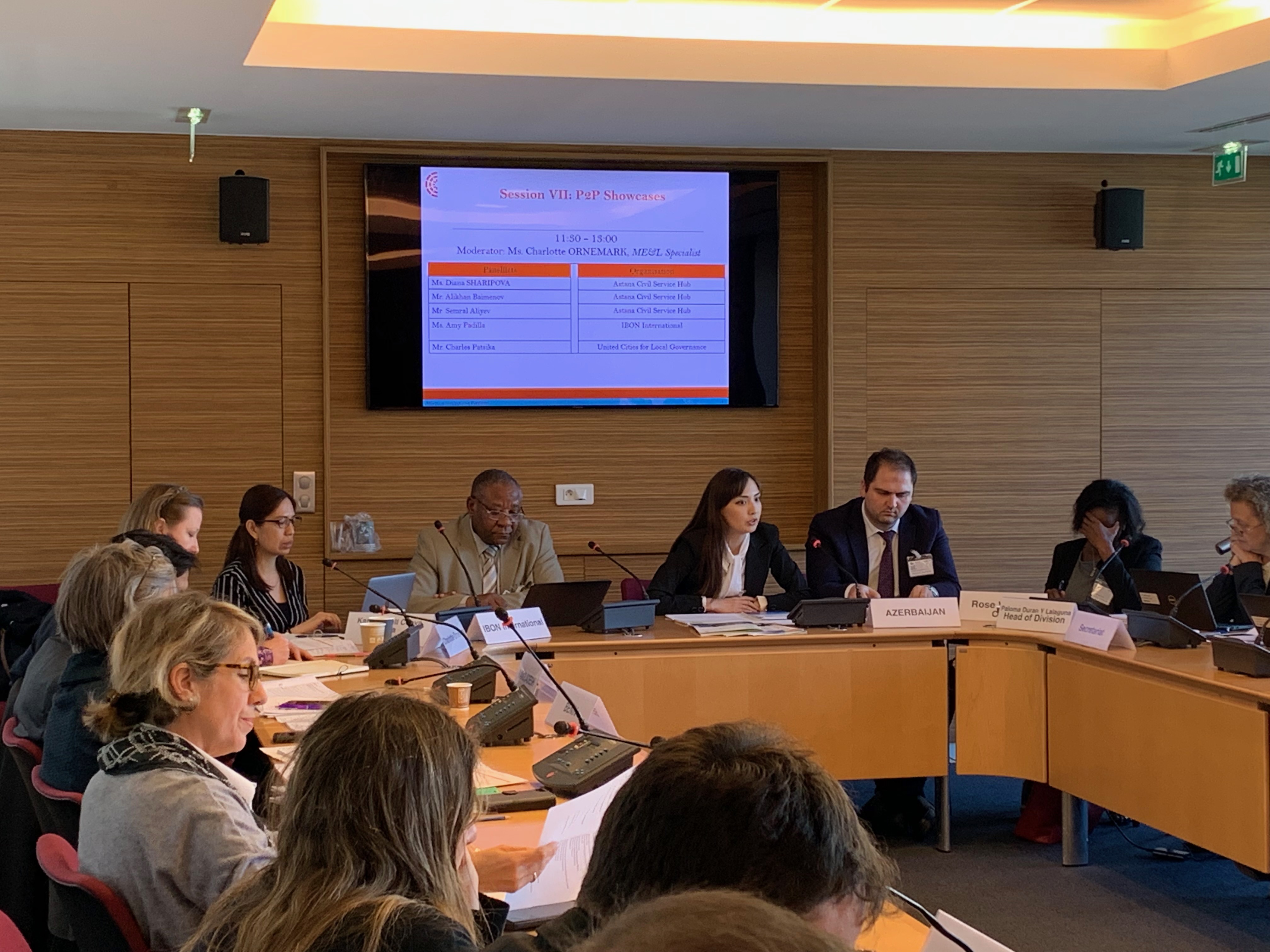Astana Hub took part in the Annual Meeting of the Effective Institutions Platform at the OECD Headquarters in Paris
The representatives of the Astana Civil Service Hub shared the Hub’s experience in supporting the development of civil service in the countries of the region through Peer-to-Peer (P2P) learning at the Annual Meeting of the Effective Institutions Platform (EIP) on 25-26 April in OECD Headquarters.
During the meeting, the Hub presented the results of acting P2P Learning Alliances with the practitioners among Azerbaijan, Armenia, Georgia, Kazakhstan, Kyrgyzstan, Estonia and Uzbekistan.
Mr. Semral Aliyev, Senior Adviser of the State Agency for Public Service and Social Innovations under the President of the Republic of Azerbaijan talked about his involvement into the Alliance II and identified it as the best way to exchange the best practices and build networks among peers of the region. He further mentioned case studies, workshops and study visits as the main activities and outcomes of the peer learning Alliance.

The peer-to-peer approach is a mechanism designed to capture tacit knowledge of practitioners and share between them best solutions for country-specific problems, as well as develop and implement “best fit” reforms.
At the moment, the Astana Hub implements two alliances: Alliance I on public service delivery was established in 2016 by experts from Azerbaijan, Georgia and Kazakhstan. The peers were engaged in P2P learning activities for the exchange of experience and development three case studies on the principle of “One Stop Shop”.
In 2018, the Hub launched the second P2P Alliance on e-government development between Azerbaijan, Armenia, Georgia, Kazakhstan, Kyrgyzstan, Estonia and Uzbekistan. As a result of the Alliance, an organizational meeting was held and a number of events for the peer exchange of experience and learning are planned.
The EIP Co-Chairs expressed their special gratitude to the Astana Hub for cooperation and support in application and dissemination of the peer-to-peer learning methodology. The participants also discussed issues of further cooperation.



